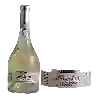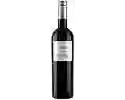Top 100 red wines of Coteaux d'Aix-en-Provence
Discover the top 100 best red wines of Coteaux d'Aix-en-Provence of Coteaux d'Aix-en-Provence as well as the best winemakers in the region. Explore the varietals of the red wines that are popular of Coteaux d'Aix-en-Provence and the best vintages to taste in this region.



































































































